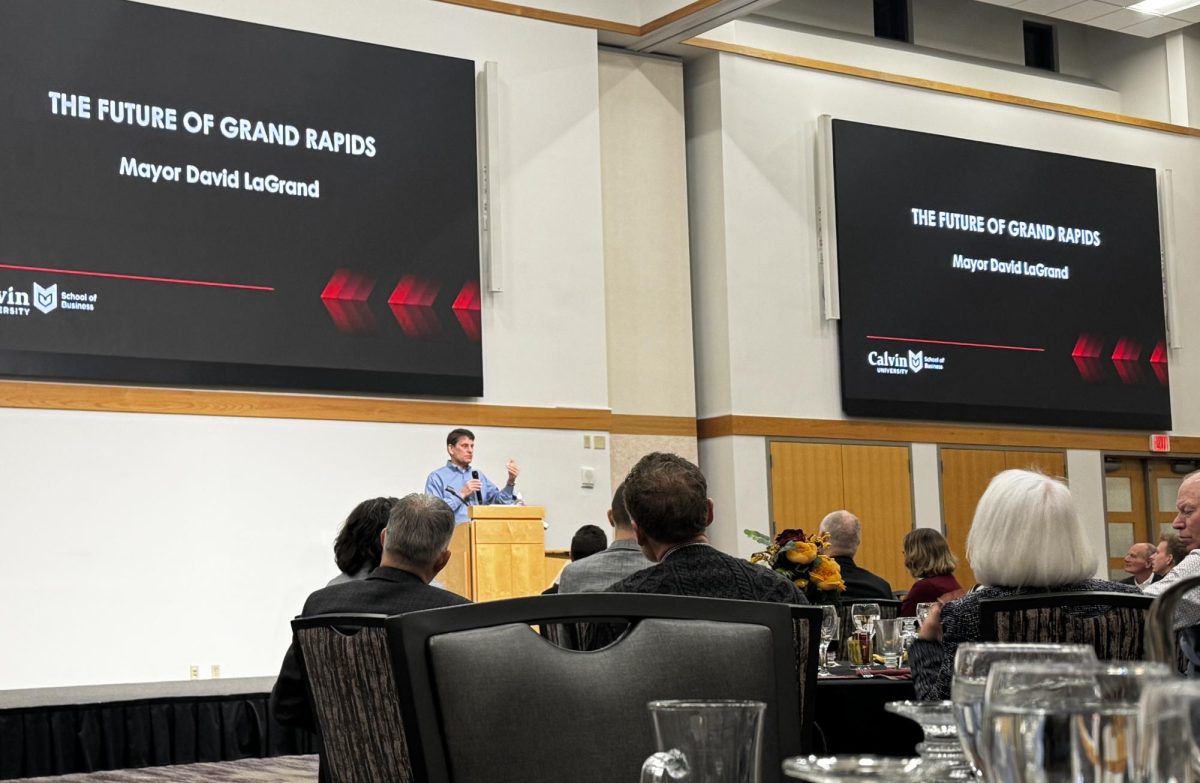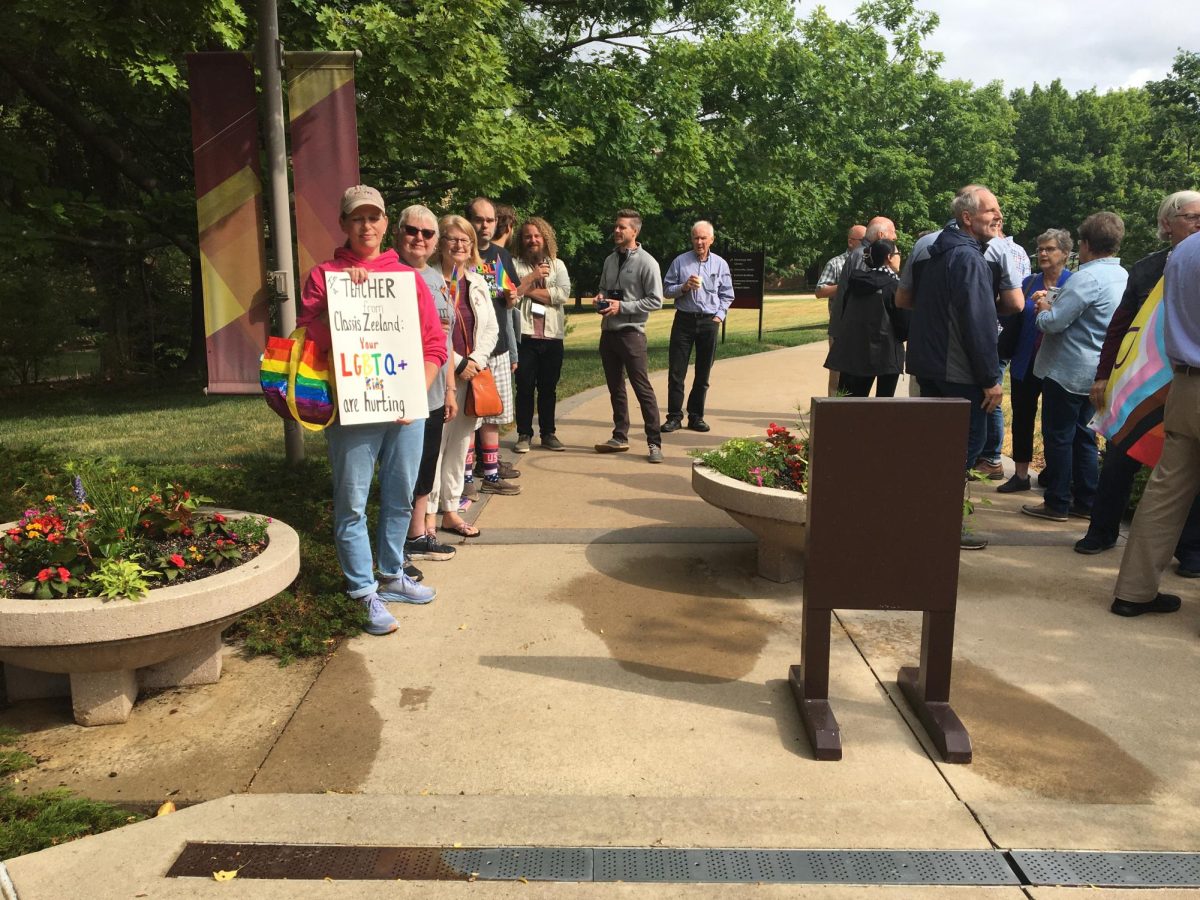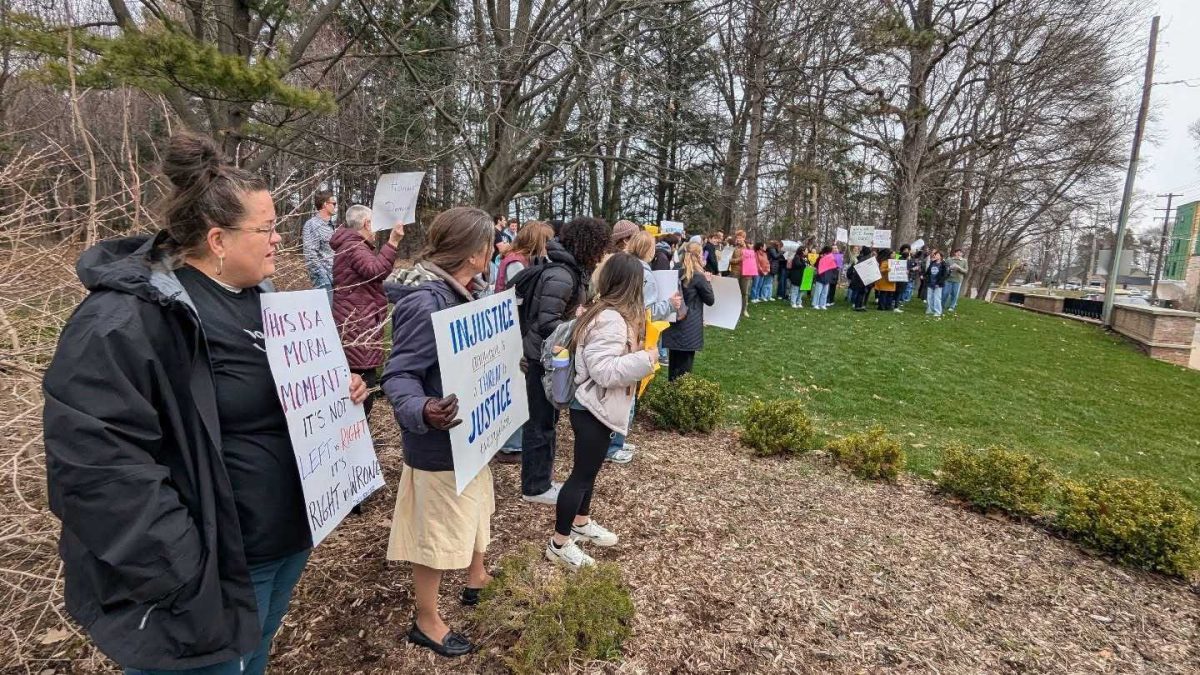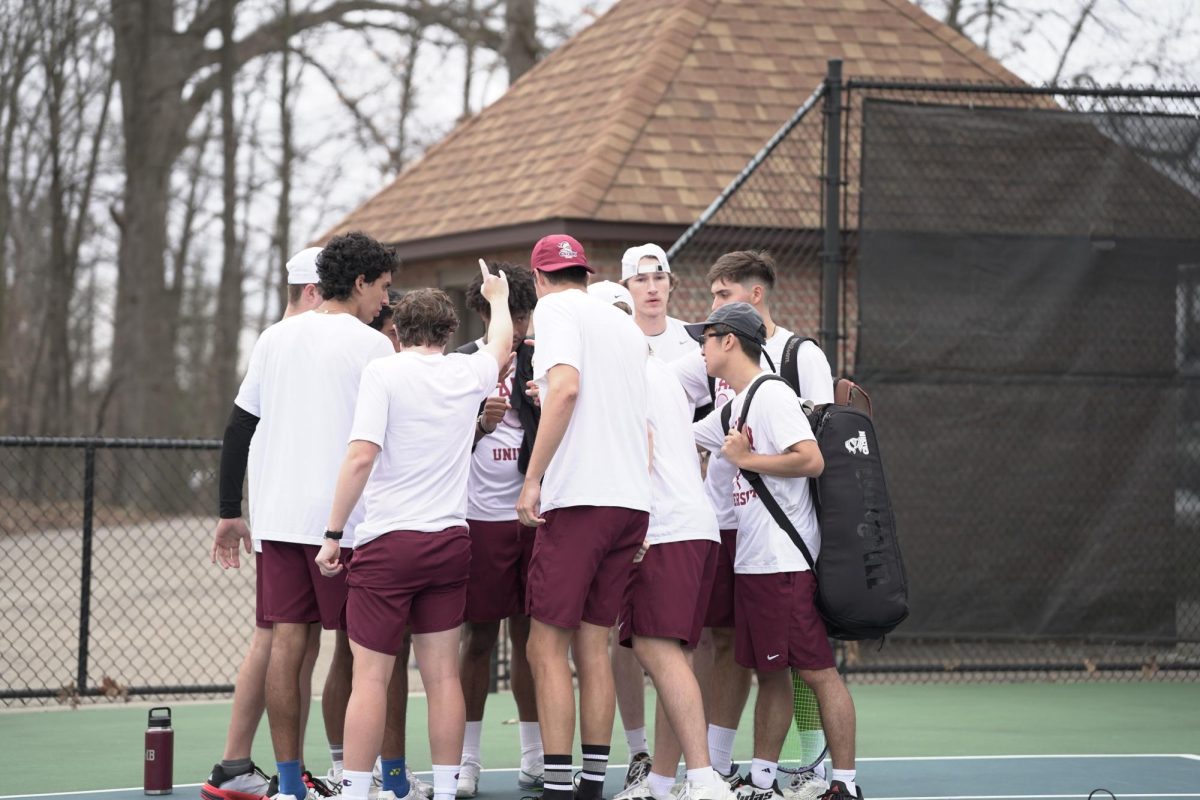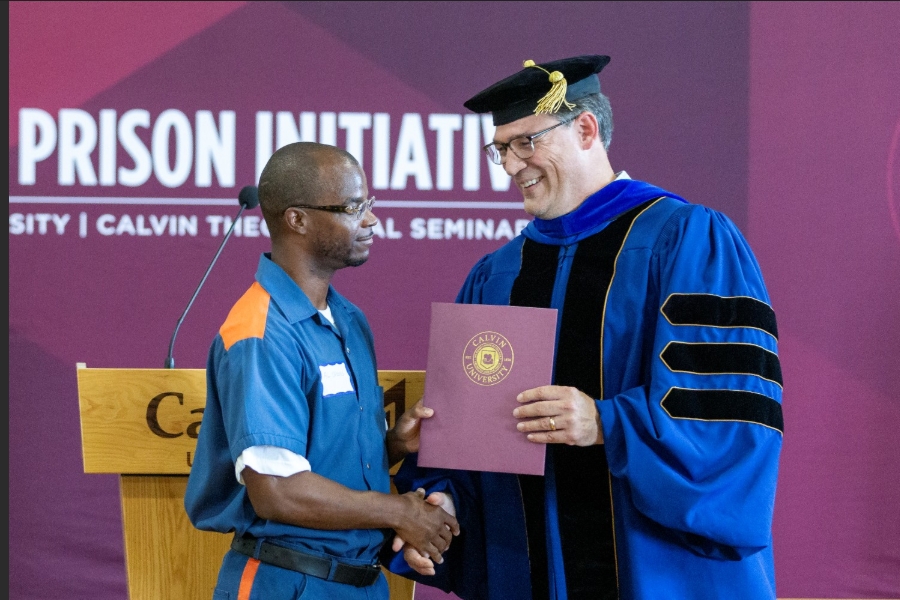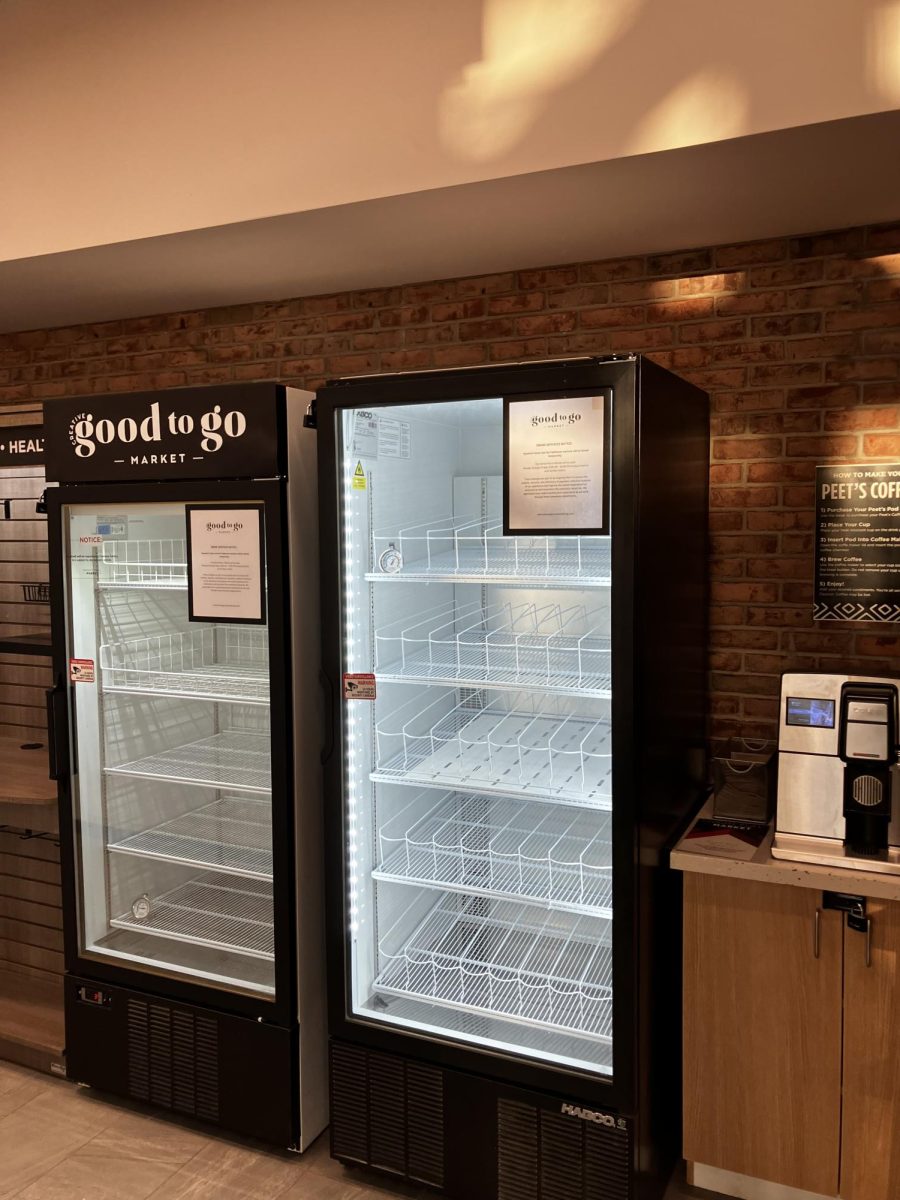On Feb. 12, David LaGrand, the newly-elected Mayor of Grand Rapids and a Calvin University alumni, spoke at the Prince Conference Center.
The event was part of the School of Business’s “Executive Breakfast” series, which, according to Calvin’s website, “connects, informs, and engages the business and organizational community with interesting and informative content delivered by Calvin University voices.” This event, titled “The Future of Grand Rapids,” focused on LaGrand’s hopes and plans for the city over the next few years.
LaGrand’s Vision
Jim Ludema, dean of the School of Business, opened the event in prayer, and Tracy Kuperus, professor of politics and economics, introduced the Mayor.
After taking the podium, LaGrand quickly noted that the title of the event was slightly inaccurate. “I have to gently reject the premise of the speech,” he said. “I can’t predict the future of Grand Rapids.” However, LaGrand did outline some hopes and goals for the city over the next eight years. “I hope that Grand Rapids will be a flourishing community that acts with integrity and democratic principles,” he said.
Throughout his speech, LaGrand emphasized “a radical rejection of our own importance.” “I’m semi-allergic to the term leadership,” he said. “I don’t want to be a leader. I want to be someone who helps all of us frame and vision how to live in a community where we actually listen to and value each other equally.” He also emphasized a desire to combat extreme partisanship and political divisions. “It’s a lot easier to hate people in isolation,” he said. “If we can spend more time with each other, we can fight that mechanism.”
By investing in urban planning, new housing, sustainable energy, and a productive community, LaGrand said he hopes Grand Rapids will become, in the words of John Winthrop, the first governor of the Massachusetts Bay Colony in 1631, “like a city on a hill.” “If we can flourish, if we can instantiate democracy better, if we can figure out how to live in a community where we actually value everyone’s voice equally … if we can live and model that out in ways that work and make sense, we can be an example. So that’s my hope for Grand Rapids,” LaGrand said.
Attendees’ Thoughts
Vladimir Snurenco, a Lecturer of Economics at Calvin who attended the event, commented, “It’s great that he’s coming on campus, that the Calvin community can interact with him.”
Snurenco commented that he appreciates the mayor’s goal to make Grand Rapids “like a city on a hill” — an innovative, thriving city that strives to be a model for others. “It’s very hard to predict the future, but I really like his focus on mobilizing local people, local residents,” Snurenco said. “We need to remember that all human beings are created in God’s image and likeness …We just need to work together, support each other. That’s what cities are all about, right?”
Meg Pheifer, a junior majoring in history and minoring in political science and urban studies who attended the event, emphasized how LaGrand’s focus on pedestrian-friendly infrastructure has the potential to affect Calvin students. “I feel like it’s kind of hard to say what the immediate impact will be on Calvin’s students — because Calvin’s campus is sort of insulated from the city — but I hope that under Mayor LaGrand, there will be just more opportunities for students to access different parts of the city and to get to go explore and see it and potentially see a future for themselves,” she said.
Pheifer pointed out that many goals LaGrand outlined are already somewhat present at Calvin. “When he talks about [how] he wants a flourishing community where people are willing to put in the work to cooperate and to lead and to innovate, I think that’s something that Calvin sort of already does,” she said. “So I think in some ways, Mayor LaGrand is hoping to sort of kickstart that same sort of sentiment in Grand Rapids.”
Pheifer noted that while LaGrand’s aspiration to make Grand Rapids “like a city on a hill” is a good goal, it’s not currently achievable. Pheifer also pointed out that there are a lot of changes that would need to be made first, particularly regarding the housing crisis. “But I do think that it’s valuable to have those aspirations because it sort of provides a standard or a goal, something to inspire people as they work and innovate,” said Pfeifer.
People also expressed thoughts on the connection between LaGrand and Calvin. Bob Eames, Director of the Calvin Center for Innovation in Business, commented on how LaGrand’s speech demonstrated the benefits of a liberal arts education. “I hope students would walk away from a session like this [with a sense of] how wide-ranging the sources of David’s thinking is, which I think goes back to the value of his liberal arts education here at Calvin,” said Eames.
Like Eames, Jasmine Kamau, a politics, philosophy and economics major, felt LaGrand’s success amongst other alumni demonstrates the power of being educated at Calvin University. “You can meet so many different types of alumni doing such great things, and that’s amazing because we get to have an opportunity to talk to these people and kind of identify with our Calvin background,” said Kamau.




